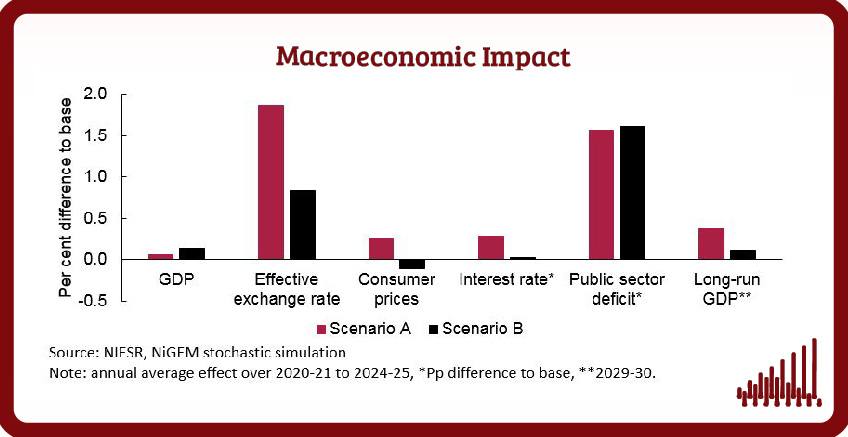The Macroeconomics of Fiscal Give-Aways
 Pub. Date
Pub. Date
 Pub. Type
Pub. Type

Abstract:
In this NiGEM Observation, we evaluate the macroeconomic effects of expansionary fiscal policy measures on the UK economy. We consider two fiscal packages, one based on Labour Party policy and one based on some of the policies put forward during the 2019 Conservative Party leadership campaign. We show that while these policies would have little effect on the level of economic output, they might nevertheless change the composition of output and the distribution of income in the directions desired by those that proposed them.
After more than ten years of fiscal restraint, a loosening of the public purse now appears almost inevitable. There are clear pressures for higher spending. Based on our own assessment of government expenditure needs (Hantzsche and Young, 2018), we have been arguing for some time that spending will have to rise to accommodate demographic pressures and maintain the quality of public services. Recent proposals confirm our judgement. And with borrowing costs low, the argument that there is space for spending more/taxing less has also been strengthened recently (Blanchard, 2019).
Using simulations on NIESR’s global macroeconomic model NiGEM, we find that expansionary fiscal measures akin to those proposed at both ends of the political spectrum would add to public borrowing. However, the impact on economic growth is estimated to be small, in line with conventional wisdom that fiscal expansions are crowded out by monetary policy and exchange rate adjustments in open economies, especially when output is at or close to potential.
NiGEM Observations is a series of occasional notes published by the NiGEM team on topical macroeconomic modelling issues for NIESR corporate sponsors and NiGEM subscribers.



















